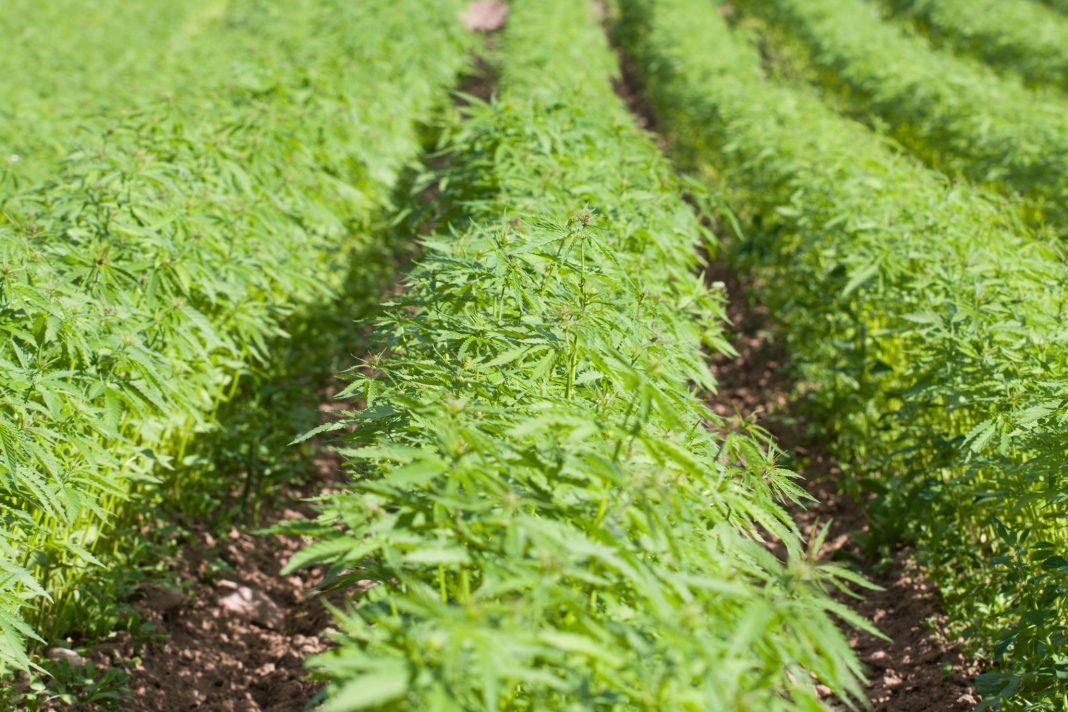Maybe you’ve seen that growing industrial hemp and consuming cannabidiol (CBD oil) are legal in Alabama. And you might say “Gosh, I’ve heard growing hemp is legal and profitable, and I bet it’s as easy as planting petunias in your front yard and striking oil!”
Not so fast, says Alabama Extension regional agent Rudy Yates. “At the outset, you’re looking at an investment of over $5,000 for fees, clones, pest control, labor and other costs. And that’s just for a one-acre plot.”
“There is also an intricate process of application, compliance, and inspection through the Alabama Department of Agriculture and Industries (ADAI) in order for someone to receive a permit to grow industrial hemp legally,” Yates said.
Yates said the very first thing a prospective industrial hemp grower should examine, before investing money or seeking a permit to grow it, is to identify a market, find out where the market is and decide what type of hemp product to produce for that market.
CBD oil, fiber (rope, building materials, paper, etc.), and seed are the most common industrial hemp products. Yates said that growers should also carefully research hemp buyers, to ensure buyers have a history of honoring their contracts.
Yates cautioned that prospective industrial hemp growers should also be careful when considering profitability claims of growers in other states, especially states where growing hemp with high THC content (marijuana) is legal. “When someone says ‘they’ made a ton of money from hemp, find out who ‘they’ are. It could be somebody in Colorado or California, where growing marijuana is legal,” Yates said.
Growing marijuana in Alabama and most states is illegal due to the much higher presence of THC, the psychoactive ingredient that gives users a ‘high.’
“There is a potential for CBD oil to have an extremely minute amount of THC. ADAI regularly tests all hemp produced in Alabama to ensure it is under the legal threshold of 0.3% THC,” Yates said.
Industrial hemp is an agricultural crop in the same way cotton, peanuts, soybeans, corn are—which means it is susceptible to drought, excessive moisture, fire ants, armyworms and blights that can severely damage, or eliminate, a hemp crop.
“Growing industrial hemp is different from growing something such as, for example, soybeans, which can in some cases be low maintenance—requiring only occasional monitoring and spraying. Industrial hemp, on the other hand, requires hands-on daily involvement and inspection for pests and plant diseases,” Yates said.
Alabama Extension’s role in the industrial hemp industry is to assist agricultural production. ADAI handles the permit approvals and compliance. “We are not trying to discourage anyone from growing industrial hemp. We just want people to be aware of the risks involved, and help growers navigate the hurdles to be successful,” Yates said.
For more Alabama Extension information about industrial hemp production, visit:
https://www.aces.edu/blog/topics/crop-production/alabama-industrial-hemp-program/
Also, feel free to join us Thursday, October 15 from 1pm-2:30pm for an informational webinar that will provide an overview of hemp, the hemp industry, and address misconceptions about the crop in Alabama. You can register at:
https://www.aces.edu/event/whats-the-buzz-with-hemp/2020-10-15/
The Alabama Cooperative Extension System (Alabama A&M University and Auburn University) is an equal opportunity educator and employer. Everyone is welcome! Please let us know if you have accessibility needs.

















